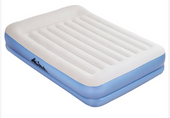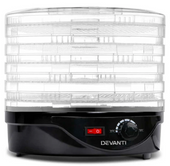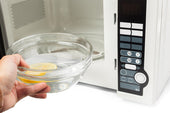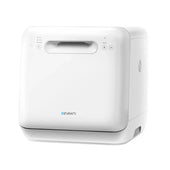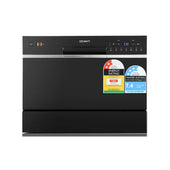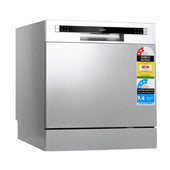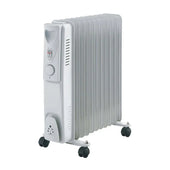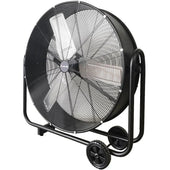Understanding the Causes of Kitchen Sink Smells
Kitchen sink smells often result from the accumulation of organic debris, grease, and moisture in the drain or pipes. Over time, food particles and oils can cling to the pipe walls, providing a breeding ground for bacteria and mould. These microorganisms release odorous gases as they break down waste materials.
Improper disposal of food waste, such as pouring fats and oils down the sink, exacerbates the issue. At During Days, we recognise that clogs or slow-draining water can also heighten odours by trapping decomposing materials. Additionally, dried-out sink traps allow sewer gases to seep back into the home, contributing to unpleasant smells. Regular maintenance can mitigate these issues.
The Importance of Regular Sink Maintenance
Regular sink maintenance prevents unpleasant odours and mitigates the risk of stubborn build-up over time. Proper care reduces the accumulation of food particles, grease, and soap residue, which are common culprits behind bad smells. Routine cleaning ensures that bacteria and mould, which tend to thrive in damp environments, do not gain a foothold.
Additionally, regularly checking the sink’s drainage system allows early detection of potential clogs, leaks, or damage. A neglected single bowl kitchen sink can lead to costly repairs and plumbing issues. By implementing simple habits, such as rinsing after each use and running hot water weekly, one can keep the sink hygienic and odour-free effectively.
Quick Solutions to Neutralise Sink Odours
Unpleasant sink odours can emerge from leftover food particles and grease build-up. Quick remedies can effectively tackle these smells using common household items.
- Baking Soda and Vinegar: Pour half a cup of baking soda down the drain, followed by half a cup of white vinegar. Let the mixture bubble for 15 minutes, then rinse with hot water.
- Citrus Peels and Ice Cubes: Grind citrus peels and ice cubes in a garbage disposal to freshen and clean the blades.
- Boiling Water: Regularly pour boiling water down the sink to break down grease, particularly in stainless steel kitchen sinks.
- Dish Soap and Hot Water: Mix dish soap with hot water, and slowly pour it into the drain to reduce oily residue.
How to Use Baking Soda and Vinegar for Sink Cleaning
To clean a kitchen sink and eliminate odours, baking soda and vinegar work effectively. Begin by sprinkling approximately half a cup of baking soda down the drain. Pour one cup of white vinegar slowly over the baking soda, allowing the mixture to foam and fizz, which helps loosen trapped debris and residues. Let the reaction sit for about 15 minutes to break down odour-causing substances. Meanwhile, boil a kettle of water. Rinse the drain thoroughly with the boiling water to flush away loosened particles. This method can be repeated weekly to maintain cleanliness and freshness in the undermount kitchen sink.
Benefits of Cleaning Sink Traps and Drains
Regular cleaning of sink traps and drains offers several advantages that enhance both hygiene and functionality in the kitchen.
- Odour Elimination: Clearing trapped food particles and grease prevents the buildup of foul smells caused by decomposing waste.
- Improved Drainage: Removing blockages ensures that water flows freely, reducing the chances of slow drains or standing water issues.
- Pest Prevention: A clean drain eliminates residue that could attract pests like cockroaches or fruit flies.
- Prolonged Lifespan: Routine maintenance prevents damage to pipes caused by hardened grease or clogs, extending the life of plumbing systems.
- Cost Savings: Proper upkeep minimises the need for professional services to tackle severe clogs in systems such as a double kitchen sink.
Cleaning sink traps and drains maintains a functional, healthy kitchen environment.
Preventive Measures to Keep Sink Odours Away
- Regular Cleaning: Clean the sink, including the drain, with hot water and dish soap weekly. This helps to remove grease and food particles that can lead to odours, particularly in a white kitchen sink.
- Avoid Pouring Grease: Never pour cooking oils or grease down the drain. Instead, collect them in a container and dispose of them in the bin.
- Use a Sink Strainer: Fit a strainer over the drain to catch food debris, preventing it from clogging and decomposing within the pipes.
- Flush with Hot Water: Pour boiling water down the drain after washing dishes to clear soap and food residue.
- Add Baking Soda: Sprinkle a small amount of baking soda down the drain weekly to absorb odours and neutralise acidity.
- Check Garbage Disposal: Run cold water while using the garbage disposal to flush away debris thoroughly.
- Use Natural Remedies: Periodically pour a mixture of baking soda and vinegar into the drain to prevent build-up and leave a fresh scent in systems like a black kitchen sink.
Natural Remedies for Eliminating Sink Smells
Unpleasant odours from kitchen sinks can often be tackled using natural, household items. These remedies are eco-friendly, cost-effective, and safe for most plumbing systems.
- Baking Soda and White Vinegar: Sprinkle half a cup of baking soda down the drain, followed by a cup of white vinegar. Let the mixture fizz for about 10 minutes before flushing with hot water. This combination breaks down residue and neutralises smells.
- Lemon Peels: Insert a few small lemon peels into the garbage disposal unit, allowing them to grind. Their oils release a fresh scent.
- Boiling Water and Salt: Pour boiling water mixed with rock salt into the drain; this helps dislodge grease and odour-causing debris in any kitchen sink setup.
How Pipe Blockages Contribute to Sink Odour
Blocked pipes in kitchen sinks are a leading cause of unpleasant smells. Food particles, cooking grease, and soap residues often accumulate within the drainage system, creating ideal conditions for bacterial growth. As organic matter decomposes, it releases foul-smelling gases such as hydrogen sulphide.
Poor water flow exacerbates the issue by leaving these substances stagnant for extended periods. Hair, coffee grounds, or fibrous vegetable waste can further contribute to blockages, amplifying odours. If pipes remain untreated, the accumulation solidifies or worsens over time, leading to recurring smells. Regular maintenance and prevention steps can help mitigate these undesirable effects on kitchen hygiene.
Chemical Cleaners: Should You Use Them for Your Sink?
Chemical cleaners are widely available and often marketed as quick solutions for unpleasant sink odours. These products typically contain powerful agents designed to break down grease, food residue, and organic matter that contributes to smells. While effective, their harsh ingredients can sometimes corrode pipes, especially for older plumbing systems.
Users must be cautious when selecting products, ensuring compatibility with their sink materials and plumbing. Alternatives like enzyme-based cleaners offer a gentler approach and reduce risks to surfaces and health. However, repeated use of chemical cleaners can impact the environment negatively. Always read instructions carefully to avoid misuse and explore eco-friendly options for regular maintenance.
Maintaining a Fresh-Smelling Sink: Tips for Long-Term Care
- Rinse after Use: Regularly rinse the sink with warm water to wash away food particles and residues.
- Use Baking Soda Weekly: Sprinkle baking soda across the sink and scrub lightly to neutralise odours and maintain shine.
- Dispose of Waste Properly: Avoid pouring grease or oil down the drain, as they can solidify and trap odours.
- Clean the Strainer: Empty and wash the sink strainer daily to prevent food debris from decaying.
- Boil Water Routine: Pour boiling water down the drain weekly to dissolve build-up.
- Utilise Enzyme Cleaners: Use enzyme-based cleaners monthly to break down deep-seated organic matter.



























































